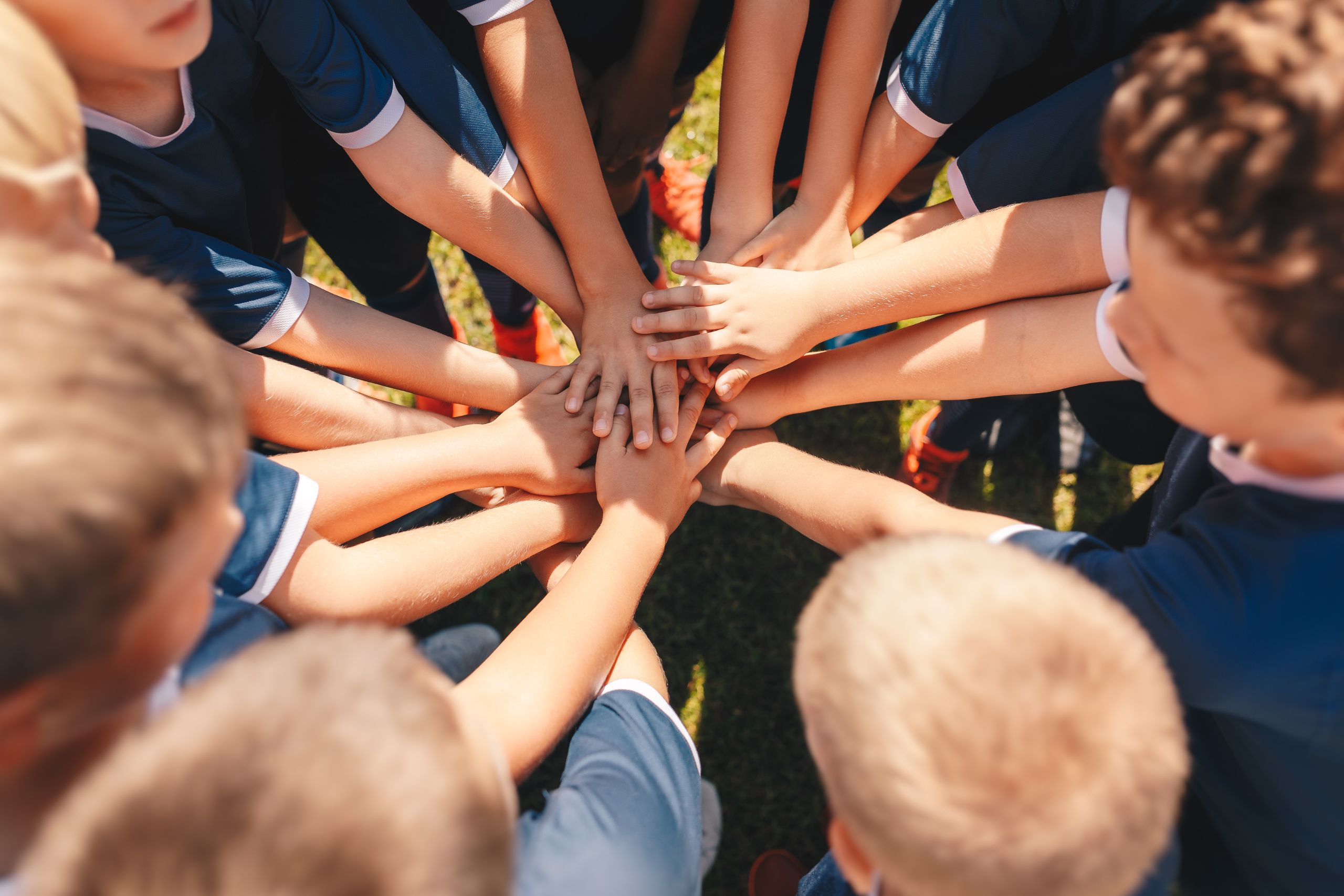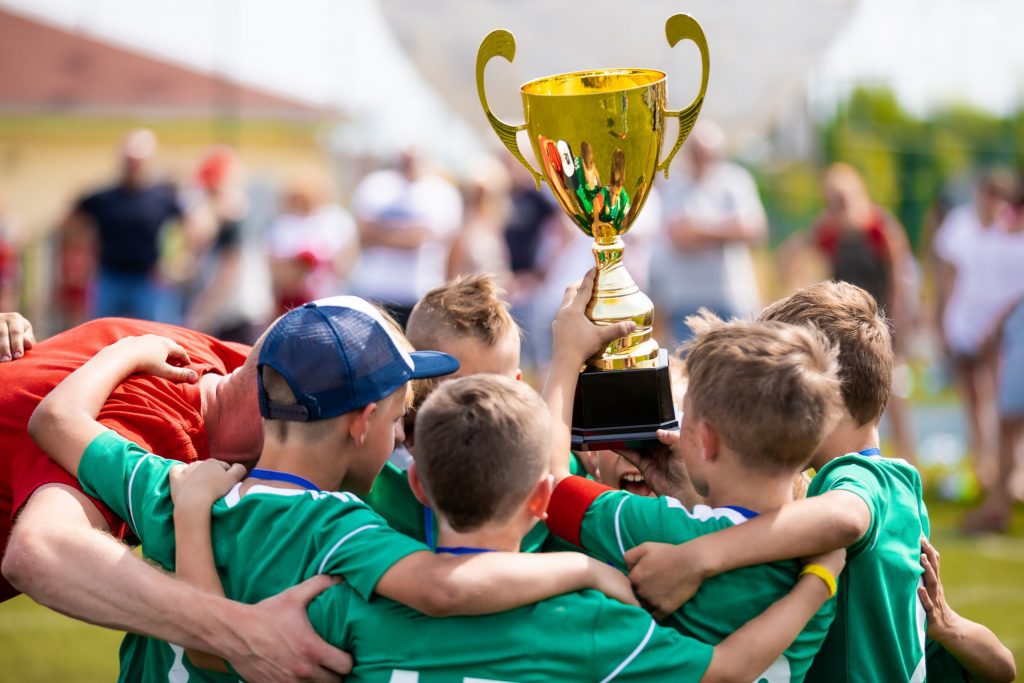
Apart from the physical sphere, team sports provide several advantages that greatly affect mental health and welfare. Sports psychology has been a critical subject of research as society becomes more aware of the need of mental health as it shows the main effect team sports can have on psychological and emotional state. Friendships, working together, and talking to other people are all important for personal and social growth. Team sports help with all of these things. In addition to boosting confidence, stories, and support from coworkers, this makes people feel like they belong, which makes them less lonely and sad. Moreover, by means of common struggles and successes, these activities foster resilience and stress management. With particular attention on how team sports enhance mental and emotional stability, this paper will largely address the psychological advantages of these activities. Through methods of investigating these aspects, the study seeks to show the general benefits of team sports.
Building Self-Confidence and Resilience
By stressing practice, determination, and teamwork—qualities essential for success—team sports provide a great boost for personal growth. Apart from enhancing physical skill, regular practice helps one to acquire discipline and a strong work ethics. Regular work yields improvement, which sportsmen find translates into successes boosting their self-confidence and self-belief.
Group successes accentuate this development. When teams do well, everyone feels pride and success that inspires each other regardless of individual efforts. Every triumph—that of a game’s win or a personal best—helps one to believe in their own ability.
Overcoming obstacles with constant support from colleagues helps one to develop resilience. Athletes, for example, rely on one another for inspiration, motivation, and realistic plans to get beyond challenges such defeats or injury. This common experience builds relationships and facilitates more efficient healing.
Team sports help people develop resilience and self-confidence, so they equip them not only for physical obstacles but also for problems of life. One may develop individually by means of cooperation, experience, and collective accomplishments.

Strengthening Social Bonds and Reducing Loneliness
Team sports provide a special setting that improves close ties and friendships. Working in a team lets people meet others with comparable interests, thereby providing a natural setting for developing connections. Training, competition, and celebration of successes taken together foster colleagues’ feeling of camaraderie and belonging. This unity is especially evident when team members pursue shared objectives as team members learn to depend on one another, therefore fostering mutual respect and trust.
Moreover, by lowering emotions of loneliness and isolation, team sports greatly improve mental health. Regular group physical exercise helps to foster social support, which is very essential for psychological wellness. Practices and games’ encouragement and empathy may boost morale and reduce stress. Participating in a team not only helps one fight loneliness but also strengthens community, therefore improving people’s general contentment and pleasure in their lives. Team members create enduring bonds that go beyond the field as they negotiate obstacles together, enhancing their social life and thereby improving their mental wellbeing.
Encouraging Discipline and Responsibility
Engaging in team sports motivates people greatly to develop discipline and carry out team responsibilities. Regular training sessions force players to invest their time and effort, therefore fostering responsibility. Since team members rely on one another to be present and perform at their best, this dedication fosters good behaviors like timeliness and adherence to plans.
Another essential element that shows itself in team sports is accountability. Athletes develop a culture of reciprocal responsibility by realizing they rely on the efforts of their colleagues in addition to their own. By use of shared responsibility, this helps to impose discipline as team members seek to fulfill their obligations, therefore strengthening their commitment to reaching group objectives.
Furthermore, the abilities acquired in team sports may fit quite well in various spheres of life. Regular training helps one to develop the discipline necessary to properly handle personal obligations, academic problems, or professional duties. Athletes naturally become more confident as they develop in these areas. In team sports, discipline and responsibility are ultimately a strong basis for personal growth as they inspire people to shine in many spheres of their life.
Reducing Stress and Enhancing Mental Relaxation
One great weapon for lowering stress and anxiety is physical activity via team sports. Regular physical exercise produces endorphins, which are neurotransmitters that boost mood and provide pleasure. Often referred to as the “runner’s high,” this endorphin surge results from players pushing themselves throughout practices and games, immediately producing relaxation and satisfaction.
Besides, the social dynamic of team sports fosters a rich and fascinating environment. Players who cooperate on common goals develop intimate social bonds that promote overall mental wellness. Events and training courses provide athletes company and shared experiences that help them to unwind and escape daily stresses.
Physical effort with encouraging team relationships probably results in more mental relaxation. Cooperation, humor, and cooperation make players happy; they help to reduce loneliness and isolation. Team sports therefore not only encourage physical fitness but also provide a useful release for stress and anxiety, hence strengthening participants’ mental health and emotional resilience.

Conclusion
Apart from a feeling of camaraderie and belonging that improves general quality of living, team sports provide outstanding psychological and emotional advantages. These exercises help one acquire empathy, communication, and teamwork—essential social skills that improve relationships both on and off the field. People who participate in team sports frequently have reduced degrees of anxiety and depression as the support and camaraderie among colleagues aid to create emotional resilience in a favorable surroundings. Moreover, the controlled character of team sports promotes discipline, goal-setting, and milestone attainment—all of which boost self-esteem and confidence. Common experiences, victories, and problems overcome together can result in close friendships that enhance life much beyond simple rivalry. For those looking to improve their psychological well-being, develop vital life skills, and create a network of support that last long beyond the last whistle, team sports may be a joyful, rewarding path. Emphasizing the many opportunities that arise via teamwork and common enthusiasm for the game, this path in team sports offers a great investment in one’s mental health and interpersonal development.





